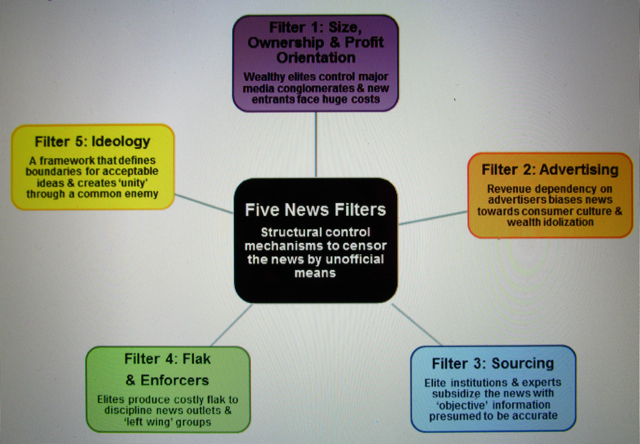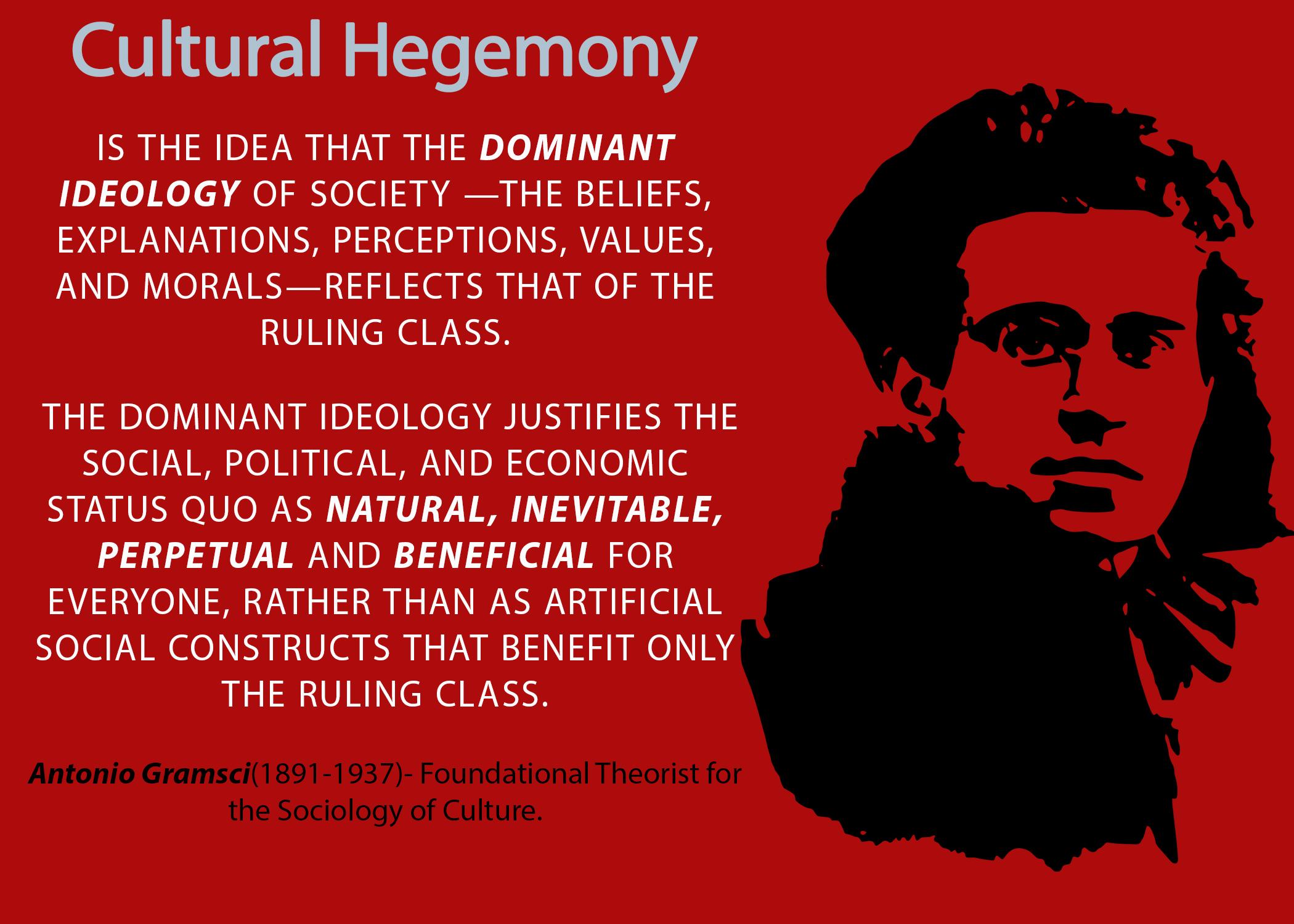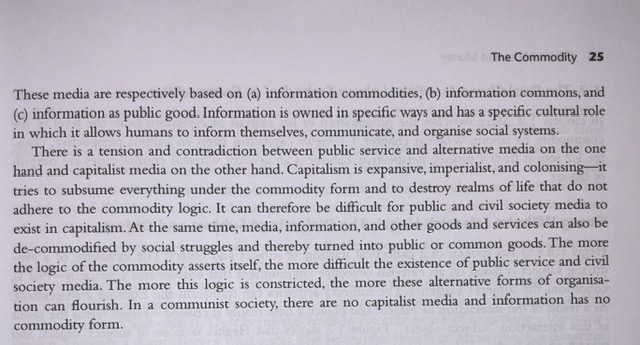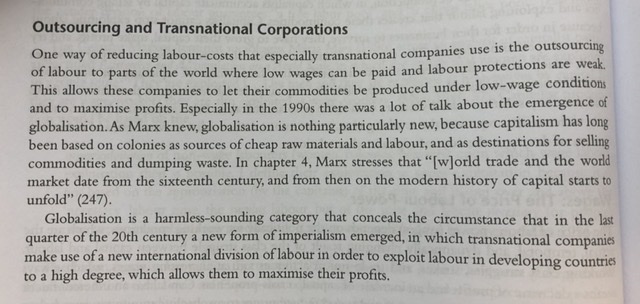- Jurgen Habermas (Public Sphere)=a theory by Habermas where people can come together to freely discuss problems and give their opinions within society. A public space includes places, such as a coffee shop.
2. James Curran and Jean Seaton = concept of the Free Market, where media are free to publish what they want, without restrictions and interference from the Government and political control. The information that is published by the press is free to use in the public domain and is open to anyone to access this information.
3. Noam Chomsky = Manufacturing consent, there are 5 filters towards manufacturing consent.
![Resensi Buku] Manufacturing Consent - Noam Chomsky](https://www.hermandonk.com/wp-content/uploads/2018/11/Propaganda-Model-Med-1080x675.jpg)

4. Louis Althusser = Interpolation and Ideological State Apparatus, ISAs describe the way in which society is structured, such as education, the arts and religion have a purpose to structure ideological perspectives within society, which then will form our own individual identity. He also noted that people believe they are “outside ideology” and that “interpolation” is a way to recognise the way that ideology is formed.
5. Antonio Gramsci = Hegemony/hegemonic struggle, hegemony is a struggle which emerges from negotiation and consent. Hegemony outlines how certain ideas can be more influential then others. Hegemony is the type of power between the working classes and the higher classes, with an example being Trump’s election.

Curran and Seaton
Curran:
– “The freedom to publish in the free market ensures that the press reflects a wide range of opinions and interests in society”
– “Newspapers and magazines must respond to the concerns of their readers if they are to stay in business”
– “The press is the people’s watchdog, scrutinising the actions of the government and holding the country’s rulers to account.”
– “The assumption that ‘anyone’ is free to start as new paper has been an illusion ever since the industrialization of the press.”
– “The advent of the internet has enhanced the freedom to publish by lowering entry costs. [..] It is possible to set up small websites, the equivalent of small corner shops, but this is not the same thing as publishing well-resourced news websites, the equivalent of supermarkets, in which a large number of people visit.”
Seaton:
– “Public service regulation has secured the survival of a successful broadcasting industry, one which has become more significant economically and which has become an important exporter of programmes, while continuing to discuss and mold national issues”
– “Broadcasting in Britain, monopoly or duopoly, always depended on an assumption or commitment to an undivided public good”
– “The concept of broadcasting has always been of a service, comprehensive in character, with a duty of public corporation of bringing public awareness to a whole range of activity and expressed developed in society”
– “One cause of the collapse of the principle of public service broadcasting has been the deterioration in the relationship between the state and broadcasting institutions.”
– “Broadcasting is a process which cannot be entirely understood from its products. few would claim that the whole nature of the industrial enterprise can be understood from the shop floor of one factory. Neither can all the pressures which condition broadcasting institutions can be revealed by an examination of what Tracey has called ‘the world of determination of a television programme’.”
The 3 Types of Media Ownership

Media as a commodity vs Media as a public good

Transnational Media Corporations and the Impact of Globalisation

– Globalisation is when businesses/companies expand from their home country to international countries and begin to offer their services internationally and in countries outside of their home country.
– Transnational media corporations have subsidiaries in other countries outside of their home country.
